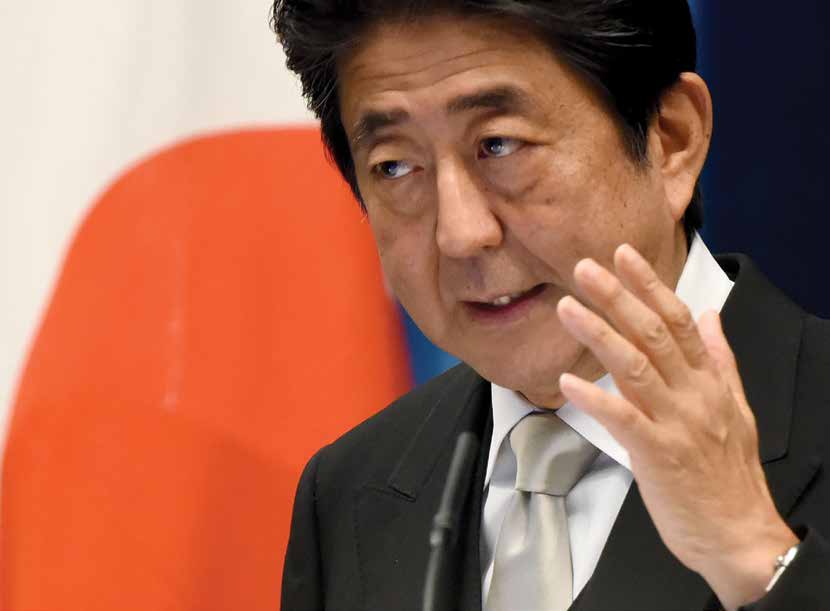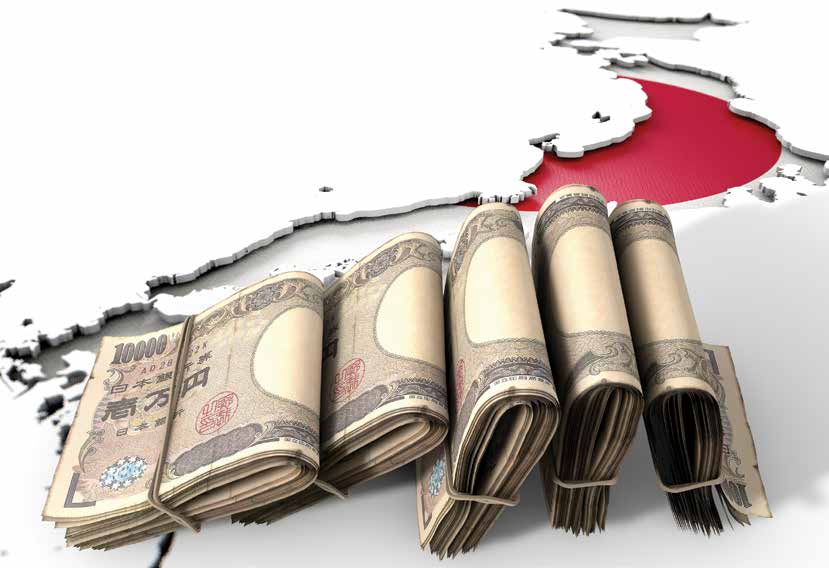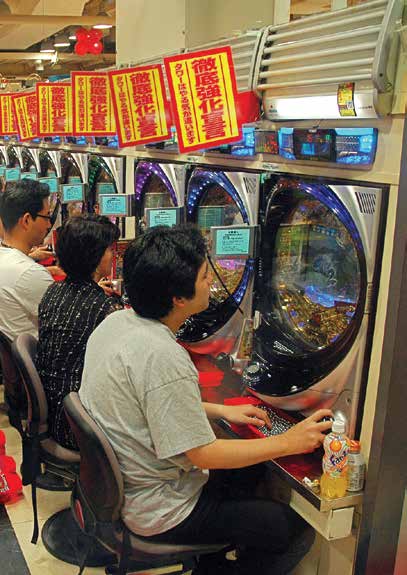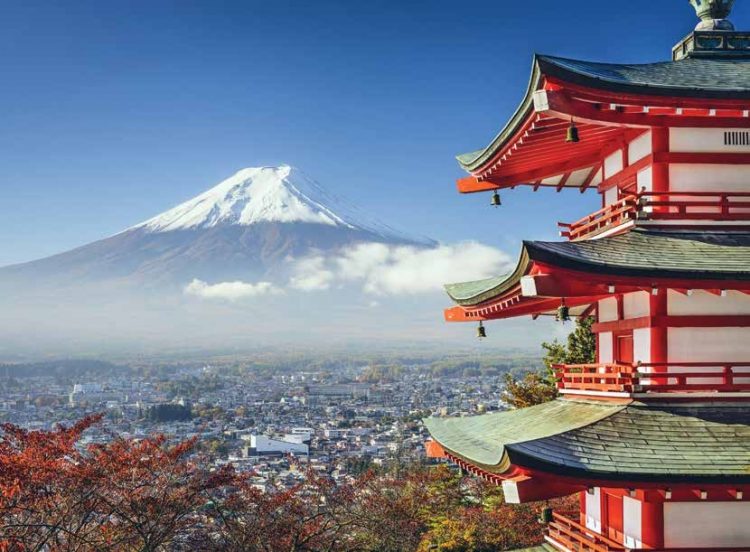By Muhammad Cohen | Editor at large
Muhammad Cohen also blogs for Forbes on gaming throughout Asia and wrote Hong Kong On Air, a novel set during the 1997 handover about TV news, love, betrayal, high finance and cheap lingerie.

Japan’s Prime Minister Shinzo Abe
When Genting Group Executive Chairman and CEO Lim Kok Thay said in November that Genting Singapore was pulling out of its US$1.8 billion integrated resort project in Jeju, South Korea, to focus on casino development in Japan, many snickered. Over the past 18 months, Korea has gone from hot to not in gaming circles as it became clear the new IRs would not be open to locals, so it wasn’t surprising that Genting would abandon an expensive project with limited prospective returns.
But Japan? That was the longest running false alarm in Asian gaming, with no real progress made along the way despite more than a decade of effort. Surely Lim Kok Thay could’ve produced a better excuse! Then, in the early hours of 15 December, Japan’s Diet approved the Integrated Resort Promotion Bill, the first step toward creating what would likely be the world’s most expensive IRs and further evidence that it is unwise to doubt Mr Lim, whose
Genting Singapore ranks among the hot favorites to gain a license, when and, yes, still if, Japan casinos become reality. The lone certainty so far is that casino legalization in Japan has never been closer.
Optimism blossomed when Liberal Democratic Party Prime Minister Shinzo Abe, a casino supporter, rertuned to power in December 2012. He did so with a lower house majority but a coalition partner, Komeito, that strongly opposes casinos. Integrated resort development was subsequently proposed as a perfect complement to the 2020 Tokyo Olympics, leading to the late 2013 introdution of casino legislation that went nowhere.
Since then, Greenberg Traurig Tokyo Associate Ryo Takizawa says, “There has been a shift in focus from IR development for the purpose of the 2020 Olympics to a focus on attracting foreign tourists to Japan on an enduring basis into the future.
“It is generally understood that now is the proper timing to get IRs up and running without a major time gap following the 2020 Olympics.”
Upper house elections in July 2016 gave the LDP precisely half the chambers’ seats and control of the body with an independent partner. Still, as late as mid-October, insiders dismissed the possibility of a casino bill during the Diet’s 2016 special session. But new party deputies plus openings in the legislative agenda led the LDP to put political capital behind the IR Promotion bill and with supporters and opponents using strong arm tactics as the session wound down, the bill passed, despite widespread public opposition.

NOT ABOUT CHINA
Japan has been lurking as a potential casino destination for so long – substantive legalization efforts began during Mr Abe’s first stint as Prime Minister in 2006-07 as a means of helping Japan out of its now quarter century long economic funk – that it’s easy to lose sight of what a unique opportunity it presents.
“Japan is the third largest economy in the world and the success of the casinos is not dependent on the Chinese market,” Global Market Advisors Managing Partner Steve Gallaway says.
Las Vegas Sands Chairman and CEO Sheldon Adelson and his MGM Resorts International counterpart James Murren have both stated their companies would spend record amounts, up to US$10 billion, on a Japan IR. For less renowned casino companies, a Japan license could do “what Singapore did for Genting,” thrusting it into the top tier of global gaming, according to Spectrum Asia CEO Paul Bromberg.
Morgan Stanley estimates Japan’s 2015 gross gaming revenue from pachinko, the pinball and slot machine games that skirt current gambling prohibitions, at US$35 billion – 20% more than Macau’s casino revenue. Based on that figure and Japan’s US$5 billion in lottery losses, Morgan Stanley predicts casino gaming revenue of US$20 billion by 2025. The report by analysts Praveen Choudhary, Masaharu Miyachi, Alex Poon, Thomas Allen and Xi Jin Ling notes that 26% of Japan’s 23.5 million tourist arrivals in the 12 months to October 2016 came from mainland China. If those 6.2 million Chinese visitors yielded the same average mass market revenue per Chinese visitor to Macau, it would amount to revenue of US$4.4 billion, in line with a US$20 billion market that’s split evenly between VIP and mass, foreign and domestic.
The report also indicates another 47% of visitors came from South Korea, Taiwan and Hong Kong, relatively wealthy places with either none or one casino open to locals.
“The success of the Japanese opportunity is primarily dependent on the local population and influx of tourism to Japan today,” Mr Gallaway says. “While I don’t expect the Chinese VIP player to be a significant part of proponents’ business plans for success, the Chinese will travel to Japan and will gamble there. However, this will be an additional outlet where the Chinese will gamble and will grow the overall Chinese gambling pie rather than cannibalize existing locations.
“The only jurisdiction that could potentially be impacted is Korea,” Mr Gallaway adds. “I suspect that many of those proposed developments are feasible on the margin only. In addition, given the proximity of Korea to Japan, it is likely that part of these IRs’ business plans are contingent on Japanese patronage. As such, with casinos now located in Japan, this could prove negative for Korean IR development.”
Wells Fargo Secrities Senior Analyst Cameron McKnight pegs Japan’s potential gaming revenue for two or three large IRs at US$5 billion each, with EBITDA up to US$1.5 billion. Mr Bromberg believes the first two or three Japan IRs could each produce the same gaming revenue as Singapore’s two IRs, roughly US$4.8 billion in 2015. CLSA Tokyo Analyst Jay Defibaugh estimates gaming revenue from two IRs in Tokyo, Osaka and/or Yokohama could “exceed US$10 billion” with US$2.5 billion in EBITDA. One IR in each of Japan’s 11 regions would bring gaming revenue to US$30 billion, down from CLSA’s estimate of US$40 billion in February 2014 – the high water mark for optimism about Japan IRs and gaming in Asia overall.
WRITING THE RULES
How big the market will be and whether the current rising tide of optimism surpasses the 2014 peak depends largely on the IR Implementation Bill, the next step in the legalization process. That legislation, which also must be approved by both houses of the Diet, will establish key parameters including the number of IR licenses and potential locations, gaming tax rates, rules for locals to play, junket regulations, local ownership requirement and problem gambling amelioration.
Making those decisions and writing them into legislation is expected to take 12 to 24 months, though Morgan Stanley Asia Pacific notes that a task force has been working on these issues for more than a year, which could reduce the wait to as little as six months, setting the stage for IRs to open as soon as late 2021. On the other hand, Sanford Bernstein Senior Analyst Vitaly Umansky expects “the devil will be in the details” and doesn’t expect “full clarity” on regulations until 2018, with no opening before 2023.
Whatever the timing, each issue represents a key decision point that will set the trajectory of Japan’s casino industry.
“Without knowing the tax rate, sizes of casinos allowed and any stipulations that could potentially be placed on locals gambling, it is not possible to put forth a credible estimate” of the initial market size, Mr Gallaway contends.
Start with the number of IRs and their locations. The general consensus is that the authorities will grant two or three licenses initially. Spectrum’s Paul Bromberg thinks it will be two licenses from among Osaka, where local authorities have exhibited great enthusiasm for an IR, Tokyo, where they’ve been preoccupied with Olympic preparations, and Yokohama across Tokyo Bay. An initial third license would likely go to a tourist destination such as Hokkaido in the north or Okinawa in the south. Union Gaming Head of Asia Equity Research Grant Govertsen believes there could be multiple licenses in the major metropolises.
“Given the size of the local population and significant interest from nearly all of the world’s top IR operators, there will be plenty of demand to justify, if not necessitate, at least three IRs from the utset,” Mr Gallaway says.
Japan’s regulatory framework is leaning away from Macau and toward Singapore, Mr Bromberg, a specialist in regulatory issues, says. That could mean tight controls on junket promoters and an entry tax for Japan residents, both likely crimping potential profits and thus IR investment. Given Japan’s mountain of government debt, lawmakers may also set a high tax rate, another constraint on profitability.

Japan’s pachinko parlors turnover more than US$200 billion annually
LOCAL TOUCH
As Japan’s flirtation with IRs dragged on, sentiment grew for ownership groups to include Japanese partners. “In entering any new jurisdiction, it is advantageous to any bidder to have local partners,” Mr Gallaway says. “I would suspect that those [bidders] who choose local partners as part of their team would have a better chance of winning.”
Most observers expect trading group conglomerates such as Mitsubishi or Mitsui to be the preferred local partners. A CLSA report by Mr Defibaugh in Tokyo and Jon Oh in New York explains that “leading trading companies can boast strong networks, blue-chip status and experience with project finance,” adding that real estate and construction companies could also take stakes in projects.
The CLSA report also states that Japan IRs represent “opportunities for a step-change in earnings” for other potential Japanese partners including tourist services specialist HIS and gaming machine companies, specifically naming Konami and Sega Sammy, a partner in an Incheon IR opening later this year in partnership with Korean casino operator Paradise Group. Beverage maker Suntory Holdings CEO Takeshi Niinami attended an October meeting on IRs that included MGM’s Mr Murren.
Requiring Japanese ownership in an IR could change how international operators approach bidding, and a mandate for Japanese majority ownership would substantially reshape the field of applicants. Wells Fargo estimates that foreign operators would wind up with a 25 to 40% share of an IR, basing its financial projections on a 25% ownership share, below consensus but entirely plausible.
Japanese ownership mandates may help win political support for IRs. A survey released last month from public broadcaster NHK indicated only 12% of the public supports casino legalization, 44% were opposed and the rest were undecided. Sources in Japan say LDP legislative ploys to pass the IR bill, including the lower house limiting debate, further eroded public support.
“The pro group needs to have a PR campaign explaining the benefits of IRs,” Mr Bromberg says. A 2015 survey by advertising and public relations firm Dentsu found that even in relatively cosmopolitan Tokyo, most people had no direct experience with IRs and limited, often flawed knowledge of what they are. That study also indicated learning more about IRs made subjects more favourably disposed toward them.
Problem gambling remains a key plank for IR opponents. A 2014 Health Ministry survey found a 5% rate of gambling addiction in Japan’s population, compared with 1% commonly found elsewhere. Mr Bromberg says that in jurisdictions that already have gambling, adding casinos doesn’t increase problem gambling.
“The reality is people are gambling anyway,” he says, citing Japan’s massive pachinko business, plus wagering on horse, boat and bicycle races. “Casinos have more safeguards [against problem gambling] in place than a pachinko parlor or an online environment.”
“With the passage of the first bill, international gaming companies will now be more active in terms of educating legislators to the benefits of gaming and explaining how the concern of increased problem gambling has been proven to be a myth due to the stringent anti-problem gambling policies that any international company applying for a license would employ,” Mr Gallaway says.
“The biggest risk to the gaming bill would be something unforeseen happening to the strength of the Abe administration before the IR bill comes to a vote.”




























